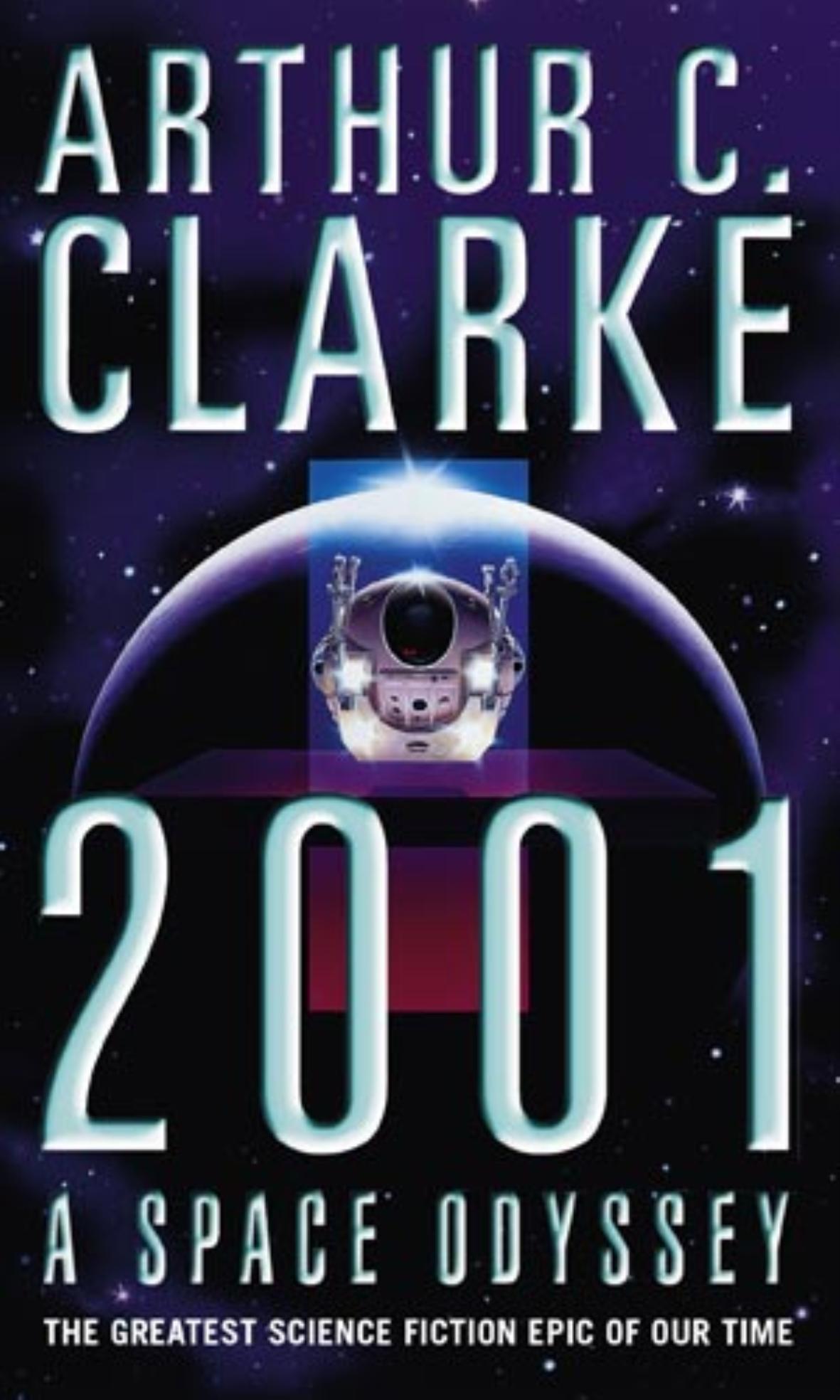Book Name: 2001: A Space Odyssey
Author: Arthur C. Clarke
Genre: Science Fiction
Labelled on the cover as "the greatest science fiction epic of our time", 2001: A Space Odyssey certainly had a lot to live up to, and I'm pleased to say it didn't disappoint. Written in 1968 concurrently with the also popular film version, it contains elements which have really stood the test of time when it comes to our thoughts and ideas of what space travel will be like in the future. The brief synopsis is that having discovered signs of intelligent life which existed prior to ours, a mission is launched to investigate the further reaches of our galaxy.
I had seen the film quite a long time ago but I had forgotten pretty much everything except a couple of images I won't discuss as they are very plot-centric. As such I was starting this book with only a vague notion of what it's about. Whilst the stories are fairly similar between the film and book version, there is one big difference, that being that in the book they travel as far as Saturn, whereas the film only takes us to Jupiter.
The book is split into large sections which are then divided further into chapters, breaking up the novel nicely. I'll touch on the first section - The Dawn of Man - here, but I don't want to give away the whole plot. 2001: A Space Odyssey actually starts way back in time, when our ancestors first learnt to use basic tools. In Clarke's vision, apes were exposed to a monolith which helped them on their way to intelligent thinking. This idea alone should give you an idea of the level of sci-fi in this book. It's nothing ridiculously complex; in fact all the ideas put forward about future technology, such as high functioning A.I., tablet computers not unlike modern day iPads, and spaceships capable of reaching distant planets, are quite reasonable and believable.
I think this is what makes the book so easy to read and interesting to absorb. Clearly a lot of research was put into it to help create the lifelike descriptions of the ship as well as space travel in general and it's clear to see. Overall, it is a very interesting what if science fiction novel, with a little action and a lot of thought-provoking material. Highly recommended.
The book is split into large sections which are then divided further into chapters, breaking up the novel nicely. I'll touch on the first section - The Dawn of Man - here, but I don't want to give away the whole plot. 2001: A Space Odyssey actually starts way back in time, when our ancestors first learnt to use basic tools. In Clarke's vision, apes were exposed to a monolith which helped them on their way to intelligent thinking. This idea alone should give you an idea of the level of sci-fi in this book. It's nothing ridiculously complex; in fact all the ideas put forward about future technology, such as high functioning A.I., tablet computers not unlike modern day iPads, and spaceships capable of reaching distant planets, are quite reasonable and believable.
I think this is what makes the book so easy to read and interesting to absorb. Clearly a lot of research was put into it to help create the lifelike descriptions of the ship as well as space travel in general and it's clear to see. Overall, it is a very interesting what if science fiction novel, with a little action and a lot of thought-provoking material. Highly recommended.
Other
Books I Considered: His Master's Voice - Stanislaw Lem; Do Androids Dream of Electric Sheep? - Philip K. Dick; Escape to Witch Mountain - Alexander H. Key
Books I Read Inbetween: The Art of Being Normal - Lisa Williamson
Books I Read Inbetween: The Art of Being Normal - Lisa Williamson
